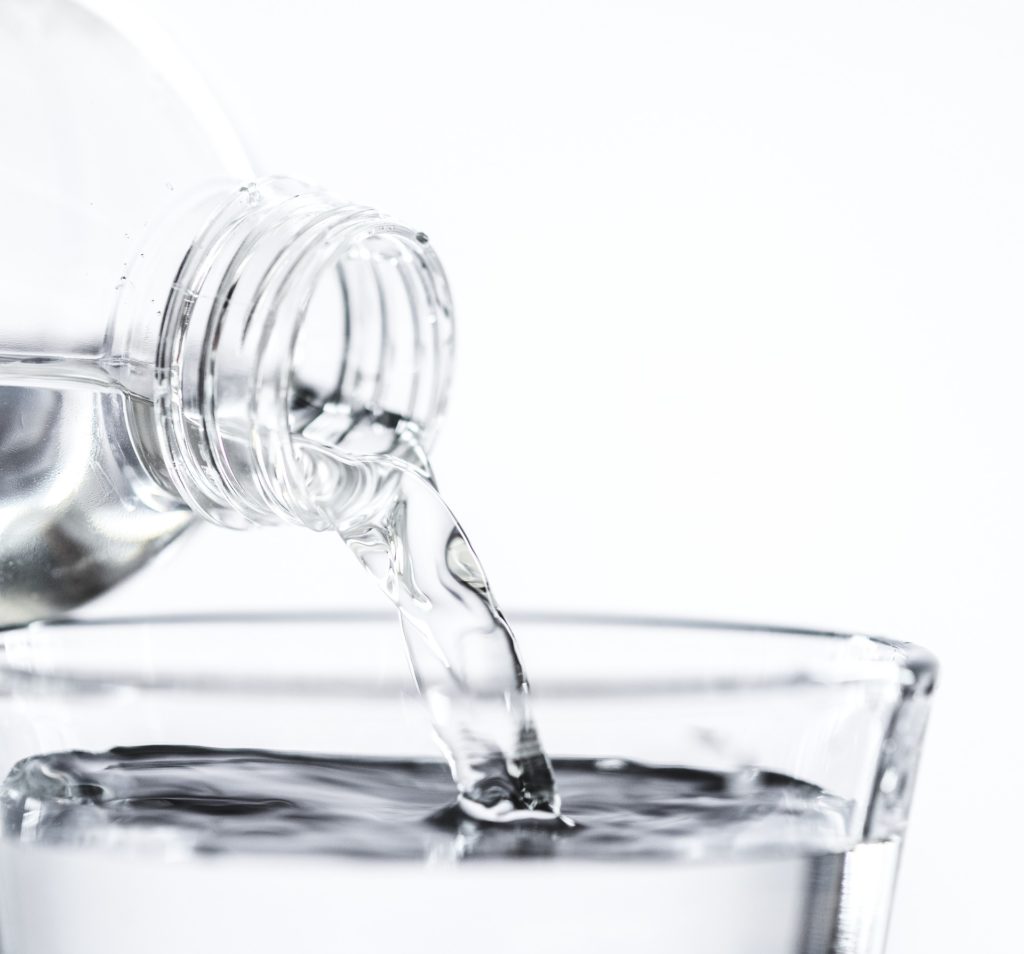One of the most important tips for achieving your health goals might come as a surprise: make sure you’re drinking enough fluids!
If you want to lead a healthier life, the first step is to increase the amount of fluids you drink each day. Drinking water actually helps you lose weight, and (somewhat counterintuitively) stops you retaining fluid!
How much fluid is enough?
Fluid requirements vary greatly between people. The amount of water you need depends on your age, weight, diet, activity level and the climate in which you live.
You should aim to consume at least 1500 ml of fluid per day, or at least 6 glasses of water.
The most reliable way to tell if you are getting enough fluid is to check the colour of your urine. If it’s pale yellow, almost clear, that means you’re getting enough fluids. However, if your urine is dark in colour and has a strong odour, this indicates you need to drink more fluids.
Why is all this fluid important?
Fluid serves many important functions in your body, including:
- regulating body temperature
- helping to lubricate your knees and joints
- helping to convert food into energy
- helping carry nutrients and oxygen to all the cells in your body
- helping to eliminate waste
- improving intestinal health and preventing constipation
- flushing your kidneys of the waste products of metabolism
Do coffee and tea count?
Tea, coffee, juice, milk and soft drinks are all okay in moderation and count towards your daily fluid intake. However it’s best if most of your fluids are plain, simple water. Water is cheap and easily accessible, and doesn’t add extra calories.
While the occasional glass of juice, cordial or soft drink is fine, these drinks can add many extra calories without helping to satisfy hunger, and can also increase your risk of tooth decay.
If you don’t like the taste of tap water, try drinking filtered water. Alternatively, flavour your water with slices of lemon or orange, or toss in a few fresh mint leaves.
But I don’t want to retain water…
As strange as it may seem, drinking fluids actually helps you prevent water retention. Drinking a sufficient amount per day flushes out any water you’re holding onto.
Excess sodium is a common cause of water retention. Drinking fluids helps flush sodium out of your body.
Other reasons for water retention include:
- Constipation
- Menstrual bloating
- Certain medical conditions, such as heart or kidney disease
But I’m not thirsty…
Often thirst is mistaken for hunger. And by the time you realise you’re actually thirsty, you’re well on your way to dehydration. It’s important to drink regularly throughout the day, regardless of whether you feel thirsty or not.
Next time you think you’re hungry, especially if you feel like something ‘wet’ such as ice cream, try drinking a glass of water and then see how you feel – you might have just been thirsty all along!
Do I need extra fluids when I’m exercising?
Yes! When you’re exercising or working in a manual job, you need to drink more than usual to replace the fluids you’re losing via sweat.
Is it possible to drink too much fluid?
While it is possible to over-hydrate, it’s a very unlikely occurrence.
You’d need to drink more than 7 litres of water per day, in conjunction with a low sodium intake. This has the effect of ‘diluting’ the regular sodium concentration of your body which can interfere with your nerve cell function. Symptoms include dizziness, convulsions, coma and possibly death.

